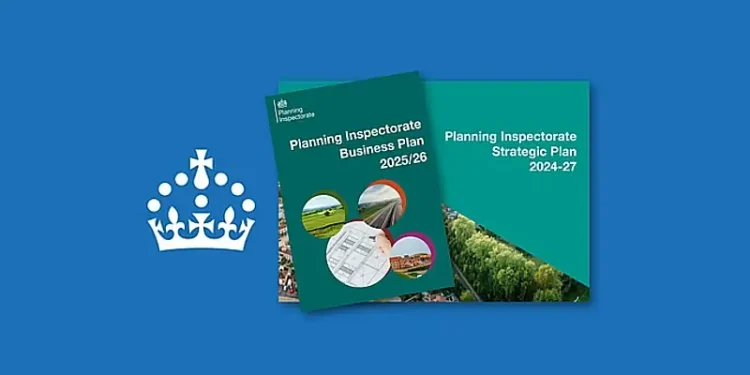The Planning Inspectorate has released its Business Plan for 2025-26, focusing on high-quality, timely decisions across planning appeals and local plan examinations.
This plan introduces initiatives like simplified appeals processes and digital service expansions to streamline operations and enhance efficiency.
Details of the Planning Inspectorate’s 2025-26 Business Plan
The Planning Inspectorate’s newly published Business Plan for 2025-26 outlines several key initiatives aimed at improving the efficiency and effectiveness of the planning system in the UK. Among these initiatives are the simplification of the appeals process and the trial of more concise decision writing.
The plan also highlights a significant recruitment campaign and the expansion of digital services to ensure faster and easier navigation of appeals processes. These measures are designed to address the current caseload and improve the speed of decision-making.
Alignment with the Government’s Plan for Change
The 2025-26 Business Plan is closely aligned with the government’s broader Plan for Change, which emphasizes the importance of planning in national infrastructure and community development. This alignment seeks to enhance the strategic impact of planning decisions on economic growth and development.
By integrating these government priorities, the Planning Inspectorate aims to create a more effective and responsive planning system that can better serve the needs of developers, local authorities, and residents.
Progress Building on Previous Achievements
The current business plan builds on the progress reported in the Planning Inspectorate’s 2024/25 Annual Report, which noted improvements in reducing caseloads and speeding up decision times. These achievements set a solid foundation for the ambitious targets set for the coming year.
Continuing from last year’s successes, the Inspectorate is committed to further refining its processes and enhancing its operational efficiency through strategic reforms and innovations.
Challenges and Opportunities in Implementation
While the business plan sets forth a clear path towards streamlined processes, it also acknowledges the challenges in reforming such a complex system. Adjustments in procedures and the adoption of new technologies may require stakeholders to adapt to new ways of working.
However, these changes also present opportunities for significant improvements in service delivery, potentially leading to quicker resolutions of planning issues and a more accessible appeals process for the public.
Insightful Highlights from the Business Plan
| Category | Detail |
|---|---|
| Key Initiatives | Simplified appeals processes, concise decision writing trials |
| Digital Expansion | Enhanced digital services for easier appeal navigation |
| Recruitment | Targeted campaign to manage increased workloads |
How Stakeholders Are Shaping the Narrative
The new business plan is expected to have a significant impact on various stakeholders, including taxpayers, developers, local authorities, and community residents. By improving efficiency, the plan aims to use resources more effectively and provide faster approvals, which is crucial for economic development.
Local authorities and developers, in particular, may benefit from simplified examinations and quicker decision-making processes, which can help in timely project completions and reduced administrative burdens.
Navigating New Paths: Strategic Goals Ahead
Looking ahead, the Planning Inspectorate plans to continue its focus on strategic reforms and innovations. The ongoing transition into the second year of the strategic plan underscores a sustained commitment to transforming the planning system to better meet contemporary challenges.
The emphasis on digital transformation and process efficiency is expected to shape the future of planning decisions, making the system more robust and responsive to the needs of a modern society.
Additional Reading
Sources: Gov.uk, and the Planning Inspectorate.
Prepared by Ivan Alexander Golden, Founder of THX News™, an independent news organization delivering timely insights from global official sources. Combines AI-analyzed research with human-edited accuracy and context.








